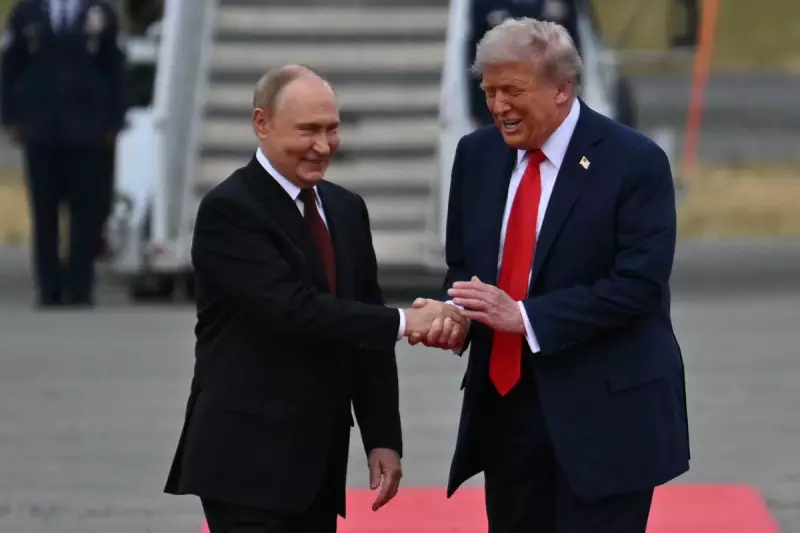
Former US President Donald Trump's unconventional welcome for Russian President Vladimir Putin during a visit to Alaska has drawn significant attention, reigniting debates about diplomatic protocols and US-Russia relations.
Eyewitnesses reported that Trump rolled out a literal red carpet for Putin, a gesture typically reserved for close allies or high-profile state visits. The event, which took place near Anchorage, has raised eyebrows among political analysts and foreign policy experts.
Diplomatic Protocol or Personal Gesture?
The elaborate greeting ceremony, complete with military honours, occurred despite ongoing tensions between Washington and Moscow. Observers noted the stark contrast between this reception and the more restrained welcomes offered to leaders of traditional US allies.
"This level of ceremonial welcome for Putin, particularly at this time, sends a very particular message," commented Dr. Sarah Wilkinson, a professor of international relations at Cambridge University. "It suggests a personal connection that transcends normal diplomatic channels."
Political Reactions
The event has drawn mixed reactions from political figures across the spectrum:
- Republican supporters have defended the gesture as a pragmatic approach to international relations
- Democratic critics have labelled it as inappropriate given current geopolitical tensions
- Foreign policy experts remain divided on the long-term implications
The White House has declined to comment on whether this represents an official shift in diplomatic protocol or was a personal initiative by the former president.
Historical Context
This isn't the first time Trump has broken with tradition in his dealings with Putin. During his presidency, he frequently expressed admiration for the Russian leader, despite:
- Ongoing investigations into Russian interference in US elections
- Sanctions against Russian officials
- Disagreements over Ukraine and other geopolitical flashpoints
The Alaska meeting comes at a particularly sensitive time in US-Russia relations, with negotiations over arms control and other strategic issues at a critical juncture.
As the diplomatic community continues to analyse the implications of this unusual welcome, one thing is clear: the personal dynamics between these two leaders continue to shape international relations in unexpected ways.





